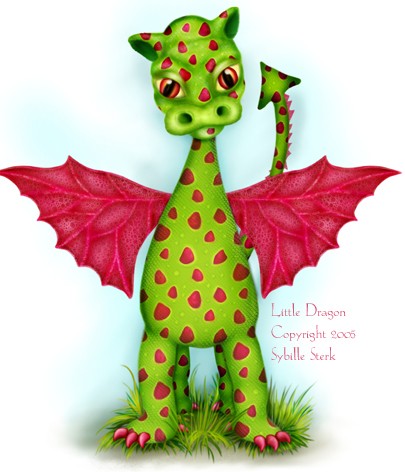Fantasy the new Mythology?
Posted May 27, 2005
Last Updated Jun 21, 2012
I was sitting in the garden with my son this afternoon. He showed me a stone that had a hole in it that went almost all the way through. I told him that it would be a fairy stone if the hole was going all the way through. When he asked me what a fairy stone was I explained to him how people used to hang such stones around their necks to protect them from fairies. But, he went, fairies are nice! No, I told him, they weren't always nice, they used to play tricks on people.
This conversation made me think about how we hand down lore from one generation to the next, and also how so much of it is lost because of TV, computers and video games etc. Not many people will sit together and tell stories. So how do these little snippets of believes and information about how things were long ago and far away (or not so far away as the case may be) get transferred from one generation to the next?
Books, fantasy books in particular and of course children's books; and to a lesser degree but no less important science fiction, although that's more about what will be rather than what was and is. Some of those books are made into films and thus their audience is even larger.
Without fantasy books and the like a lot of the stories and myths would be forgotten. How many children would know about Greek gods or who the nornes were without those books? How would I have known about the fairy stone I told my son about?
Fantasy books seem to fulfill a need in people for something else, or magic in another word, where Luke Skywalker is as magic (and important) as Frodo or the Faerie Queen.
Some people will tell you that fantasy and science fiction is bad, escapist, not worthy of the name literature, but I think those people have it all wrong. Shakespeare had his Midsummer Night's Dream; Tolkien followed Frodo all the way to Mordor, nobody can say these two are examples of "bad" literature. The Greeks had their gods, sprites and nymphs, in the far north it was the nornes, all of them - some more, some less - were important to our growth as a people, they are part of our social history.
This conversation made me think about how we hand down lore from one generation to the next, and also how so much of it is lost because of TV, computers and video games etc. Not many people will sit together and tell stories. So how do these little snippets of believes and information about how things were long ago and far away (or not so far away as the case may be) get transferred from one generation to the next?
Books, fantasy books in particular and of course children's books; and to a lesser degree but no less important science fiction, although that's more about what will be rather than what was and is. Some of those books are made into films and thus their audience is even larger.
Without fantasy books and the like a lot of the stories and myths would be forgotten. How many children would know about Greek gods or who the nornes were without those books? How would I have known about the fairy stone I told my son about?
Fantasy books seem to fulfill a need in people for something else, or magic in another word, where Luke Skywalker is as magic (and important) as Frodo or the Faerie Queen.
Some people will tell you that fantasy and science fiction is bad, escapist, not worthy of the name literature, but I think those people have it all wrong. Shakespeare had his Midsummer Night's Dream; Tolkien followed Frodo all the way to Mordor, nobody can say these two are examples of "bad" literature. The Greeks had their gods, sprites and nymphs, in the far north it was the nornes, all of them - some more, some less - were important to our growth as a people, they are part of our social history.
- Related Topics
